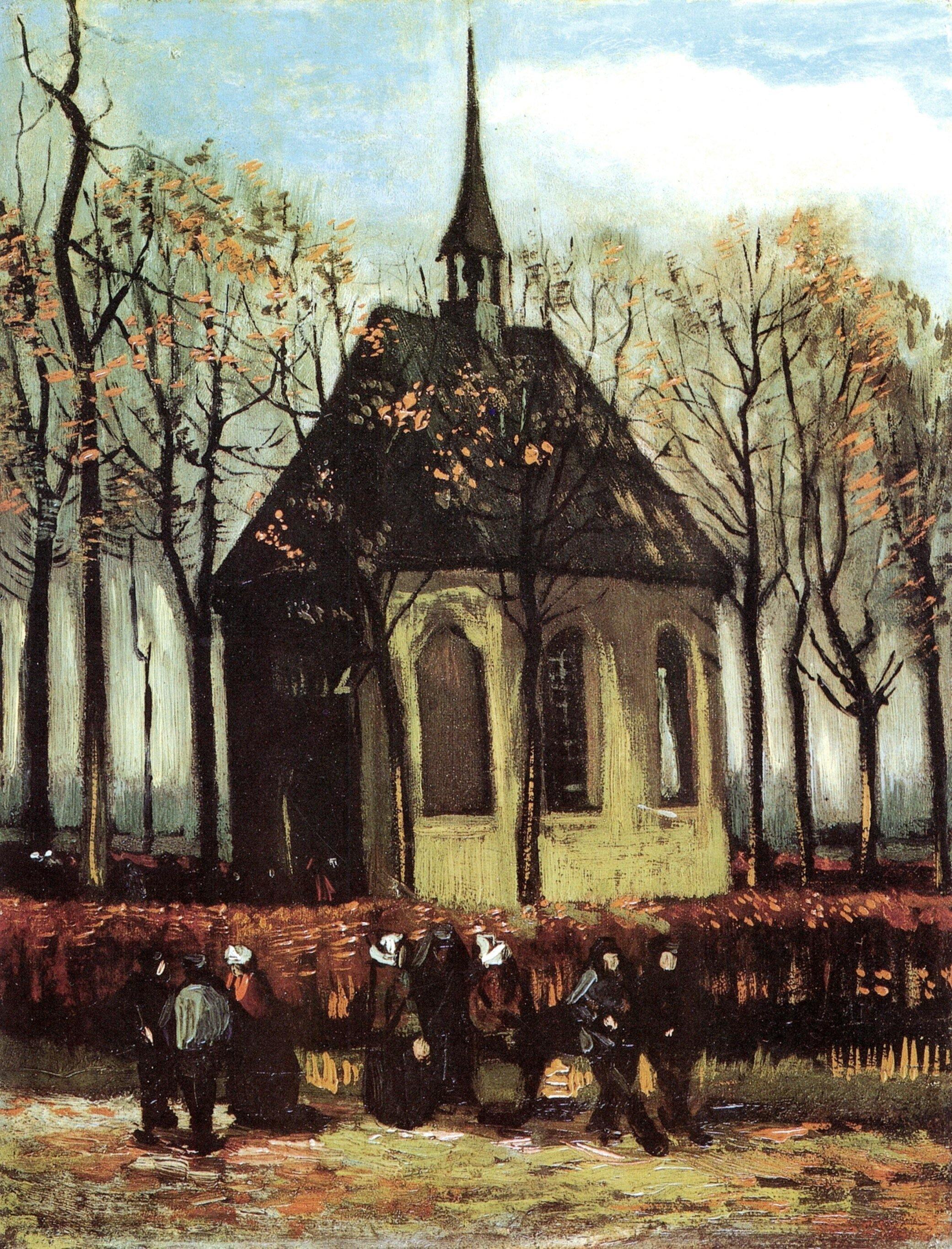Description
The painting Congregation Leaving The Reformed Church At Nuenen by Vincent Van Gogh is a masterpiece of Post-Romantic Impressionism. This work was created in 1884 and represents a group of parishioners leaving the reformed church in Nuenen, the Netherlands.
Van Gogh's artistic style is characterized by his thick brushwork technique and his use of bright, contrasting colors. In this painting, we can see how the artist uses a palette of warm and earthy colors to represent the scene. The yellow and orange tones of the sky and buildings contrast with the darker tones of the trees and ground.
The composition of the work is very interesting, since Van Gogh uses a diagonal perspective to create a sensation of depth and movement. Parishioners move in different directions, creating a sense of chaos and activity on the scene.
The story behind this painting is also very interesting. Van Gogh lived in Nuenen for two and a half years, taking a keen interest in the life of the local community during that time. This painting represents one of the many everyday scenes that Van Gogh observed and which inspired him in his work.
A little known aspect of this painting is that Van Gogh painted it in a moment of great sadness and loneliness. At the time, his father had just passed away and he had split up with his girlfriend. The painting can be seen as a reflection on life and death, and on the importance of community in difficult times.
In conclusion, the painting Congregation Leaving The Reformed Church In Nuenen by Vincent Van Gogh is a masterpiece of Post-Romantic Impressionism depicting an everyday scene of life in Nuenen. Its artistic style, composition, color and the story behind the work make it a unique and fascinating piece for any art lover.

